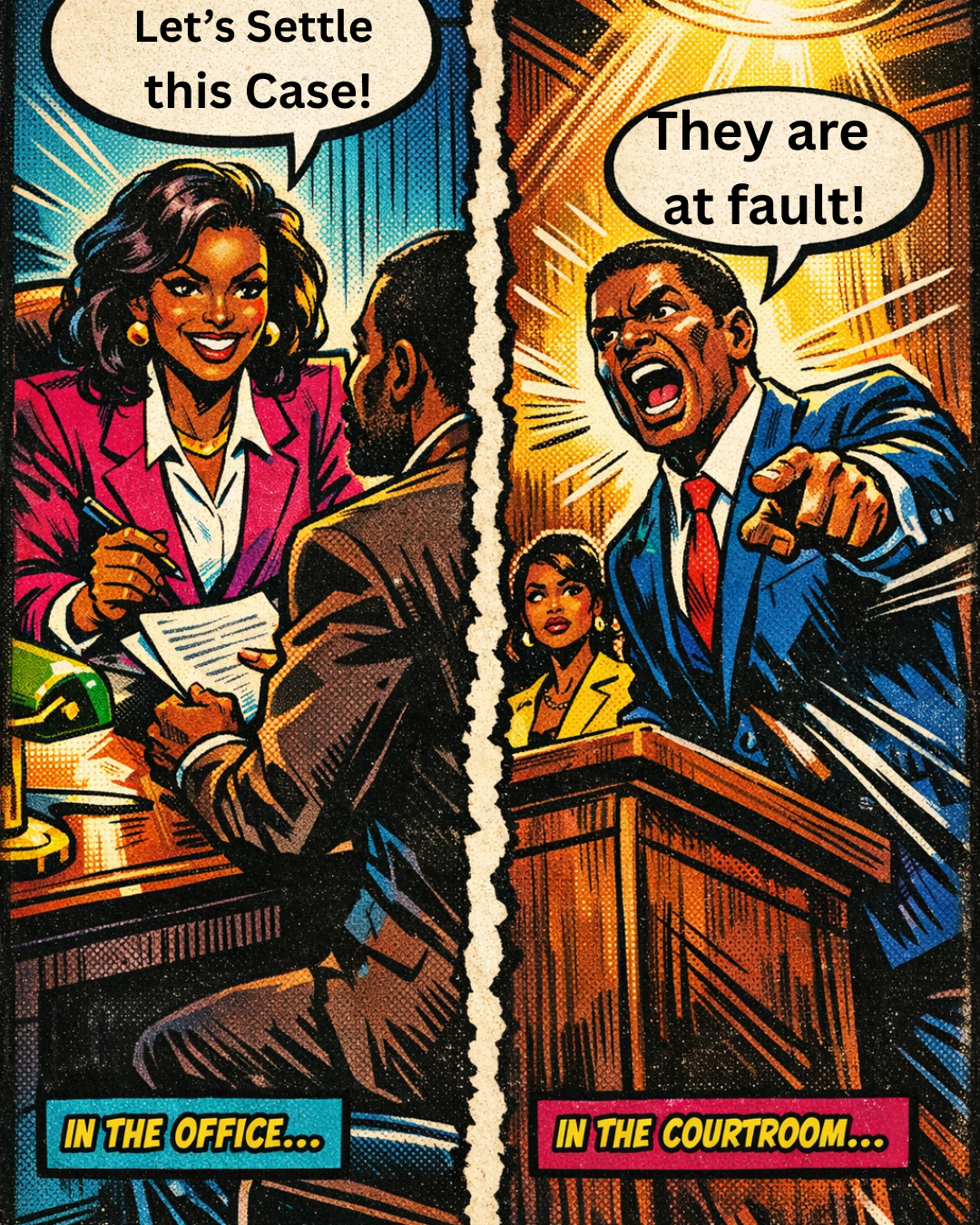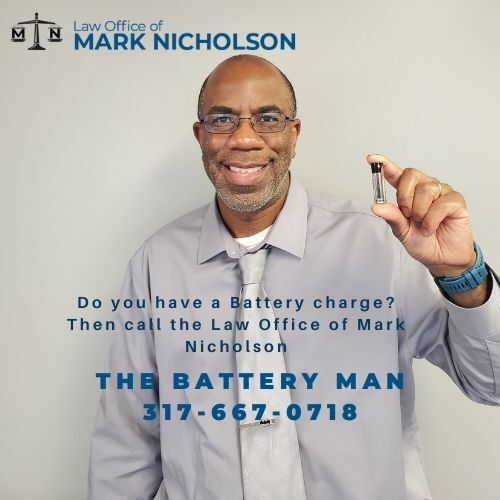The Nicholson Nugget, June- July 2022
Issue 25

This is The Nicholson Nugget: the official newsletter of the Law Office of Mark Nicholson. This article is an excerpt of the newsletter. If you want to read the full newsletter, you can subscribe by clicking here.
Listen to the Nicholson Nugget
You can listen to certain segments of the Nicholson Nugget by clicking here.
In This Issue
Domestic Battery, Hiring, Juneteenth, and Independence Day!
Legal Stuff
This issue has an article about what is domestic battery. In the last issue, we had an article about abortion. Now the United States Supreme Court has taken away a woman's constitutional right to medical privacy. Not much to say about that other than I totally disagree with that decision.
Hiring
We are still growing and urgently hiring paralegals, a case manager, and an intake specialist. If you know someone that is interested, please ask them to apply by visiting clicking here.
What is Domestic Battery?: Things You Should Know
Domestic battery is a legal term that describes a situation where someone uses touch or unwanted force in any domestic relationship. There's a common misconception that domestic violence only refers to a spouse hitting their partner and causing injuries. Many people are also unaware of how assault vs. battery differs from one another.
Here's something not many people know: even things like angry shoving, pushing, touches, punching, kicking, and other rude gestures which create a hostile living environment are considered domestic violence. Essentially, a domestic battery charge refers to any violent and unwanted physical contact.
If you have been wrongly charged with domestic battery, you will need the help and guidance of an experienced criminal defense attorney. Below are all the other basics you need to know about this charge:
Domestic battery is considered a crime.
Many people assume fighting with their significant other, their children, and other members of the family is normal and perfectly acceptable. Nothing can be farther from the truth. Domestic violence is a crime. Using force, violence, aggression, and unlawful touching is a crime. The same is true when you create a hostile living environment at home.
Domestic battery is not restricted to a spouse.
While often associated with violence towards a spouse, legally, domestic battery refers to unwanted aggression, violence, or unlawful touching of any family member. If your household includes your parents, siblings, and children, you can be charged with domestic violence if you assault any of them.
If you are charged or arrested for domestic battery, it won't always mean you will be convicted.
In some situations, a spouse is falsely accused of domestic battery and charged and arrested, only to find out that they were acting in self-defense. That said, if you are falsely accused or charged with domestic violence, it is recommended that you seek the help of a criminal defense attorney immediately.
Domestic battery charges can be a felony or misdemeanor.
Depending on where you live, certain laws have a mandatory sentence for those who are convicted of domestic battery. Domestic violence will be considered a misdemeanor if it is your first offense and there are no weapons involved (and no injuries sustained). However, a third offense will be considered a felony.
The state will govern domestic battery charges.
Only the prosecutor can drop the charges in a domestic battery case. This is because the state governs charges of domestic violence, and it is the state that has brought the charges against the perpetrator. If you are the perpetrator, your victim won't be able to drop the domestic charges against you as the state governs it.
Firearm possession will be impacted.
You will not be allowed to own a firearm if charged with domestic battery. Unfortunately, there are no exceptions to this rule. This means that even if you are in law enforcement, the military, or employed as a security officer, you still won't be allowed to own a firearm.
Domestic violence can impact child custody.
If you are going through a divorce or separation and currently litigating for child custody, your chances of getting custody can be affected significantly if you are accused or charged with domestic battery. The judge will always look after the children's best interest so that any domestic battery charge will be considered.
Conclusion
Conflict and arguments can occur in any relationship, and many assume fighting and violence are normal. If anything, threatening and getting into violent fights with a partner or any member of the family can result in a domestic battery charge. If you have been wrongly charged with domestic violence, you will need the help of an expert lawyer to help you build a solid defense.
About the Author
Stephanie Gordon currently works as the Content Marketing Strategist for the Arizona Criminal Law Team. Aside from spreading awareness about criminal law and defense, she enjoys reading and trail running with her family and friends.
Nugget of the Month
"Freedom is never voluntarily given by the oppressor; it must be demanded by the oppressed."
By: Martin Luther King, Jr.
Podcast
Don’t forget to listen and follow my podcast for exciting news and information. You can watch it on Youtube or listen to it by clicking on one of my blog articles or listening on Spotify, Google Podcasts, Apple Podcasts, and other places that play fine podcasts. You can also watch the video version on Youtube.






















